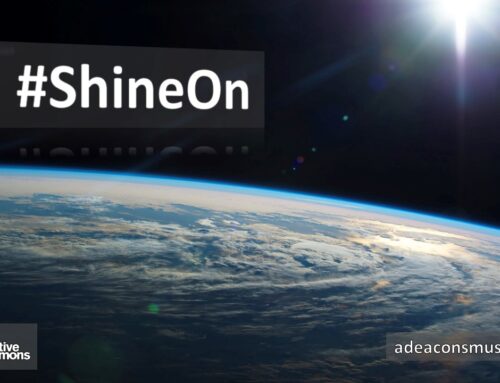Elite (n)
1 [treated as singular or plural] A select group that is superior in terms of ability or qualities to the rest of a group or society; and,
1.1 [treated as singular or plural] A group or class of people seen as having the most power and influence in a society, especially on account of their wealth or privilege.
You will excuse me if you have heard this story before dear Reader and Seekers:
This brief vignette connects me to a larger reality of the Christian journey of learning and commitment, discipleship and study. It is my understanding and conviction that learning, life-long, is required of people of faith. The shadows that our human creations foster require wisdom and one of the ancient traditions that nurtures that awakening has been the intention to study and learning.
Though the story that is often portrayed about Christianity in popular culture is anti-intellectual, literal and fundamental in orientation, it has not been my experience that this is in fact a true reflection of the faith. Whether the work, thinking and acting of Martin Luther King Jr. or the philosophical and moral musings of Søren Kierkegaard, Christians have a long history of harnessing the blessing of intellect to address the hurting in the world with compassion and intention.
Now what is interesting to me, in our current heightened culture of division and fear, is the introduction of the use of the word “Elites” as a political moniker that carries with it an undercurrent oppressively silencing critical thinking. The irony is not lost that, in some Canadian political corners, the word is being bandied by those who self-identify as elite. These same people then position themselves in a populist manner claiming to speak for those who suffer the yoke of the ‘Elites.’
From a Liberation Theology position, it is indeed fair to ask questions of equity and distribution of privilege that preferences any particular group. In western democracies, this is often associated with what some call white privilege. In turn, such privilege helps establish, support and maintain those who have: Elites, if you will. I do not, however, believe that this is the manner in which the word is being used. I suggest that it is being utilised in a way to polarise and is ultimately intended to be politically weaponized.
In fact, underpinning the word is a response to the current scientific knowledge that is beginning to speak to such wide-ranging topics from mental illness, law enforcement, gender identity to climate change and planetary resource management. In all of these cases, a commitment to learning and study is intrinsically connected to knowledge creation. Of course, that knowledge should be and must be critiqued, perhaps even interrogated in civil discussion that intends to navigate the best path(s) through this time which carries such descriptions as upheaval and even chaos. Yet the term is used in a manner that undermines that learning in a manner that not only divides, it stands to threaten us in very real and tangible ways.
I am not – at the end of this musing – trying to convince you that I am right. I, as one who knows he fits the bill as one of the elites, encourage us to be bold in our conversations. To speak to one another with civility even when we disagree. In fact, I welcome the fermentation that occurs in the commitment to the discipline of learning. As a Christian, who sees in Jesus’ ministry a mandate to think critically (Matthew 22:15-22), we must bravely engage in these conversations and never succumb to dismissing one another based on ideological orientations that dehumanise one another.
There is no question that something is afoot in the great human experiment called life. If we bravely explore it together, in the fermentation of passionate and fierce conversations, I strongly suspect that something new, something good, and something unexpected will be discovered that will reveal dreams yet dreamed, stories longing to be told, and worlds beckoning to be found!












This is a really thoughtful piece and, as someone who is not religious, opens up many trains of thought as we enter a new world, post-US election. It’s interesting to see so many faiths come together as one to unite against one man’s ideology. Perhaps that could be the good that comes from the bad, now that the civility you mention in your post is under threat from the “bow down to my thinking!” of many online political commentators.
Sorry to go off on a tangent there, didn’t mean to. But that’s what happens when content makes me think, so thank you for that. 🙂
Hi Danny,
Thanks so much for taking the time to not only read the blog, but to connect! Thinking is pretty wonderful!
I think part of the hope – and I hear that in your reply – is that for many for who engage from a faith orientation there is indeed a sense of a responsibility to nurture the ‘social good.’ I think each faith perspective does this in particular ways and the conversations we are having hopefully help in the current democratic context in which populism is rising. One of the challenges is that, as I hopefully made clear in the blog, is that often faith and belief are presented in a monotone manner in the media. This detracts from the need for all of us collectively – regardless of ideology, belief systems or philosophy – to see in our commonality a need for civil dialogue. Does that make sense? As well, it would be interesting to know are you writing from a US context or was that simply part of your reflection?